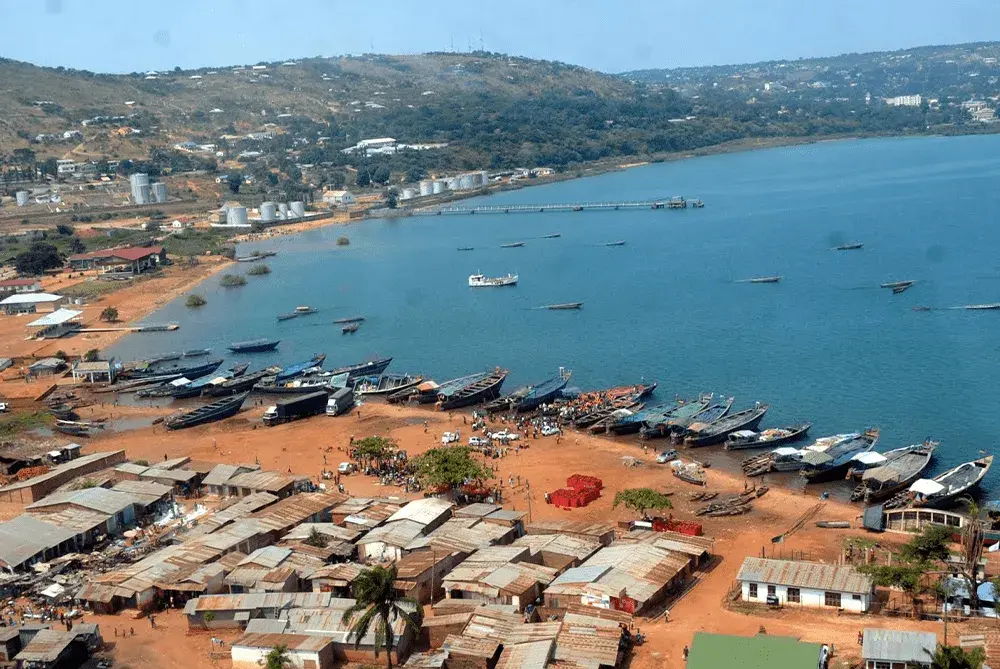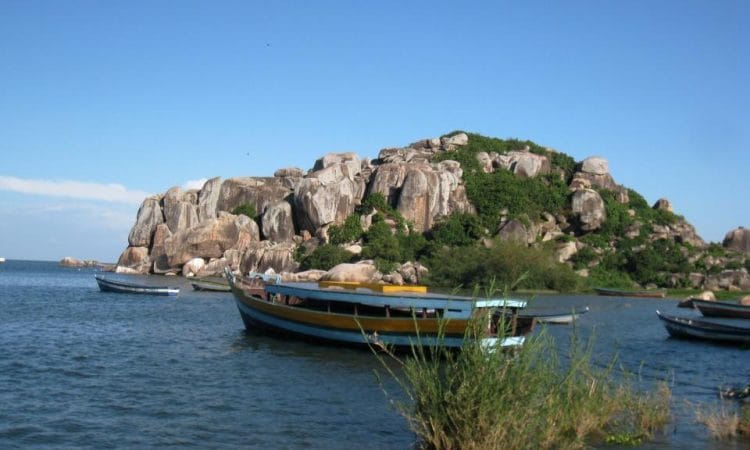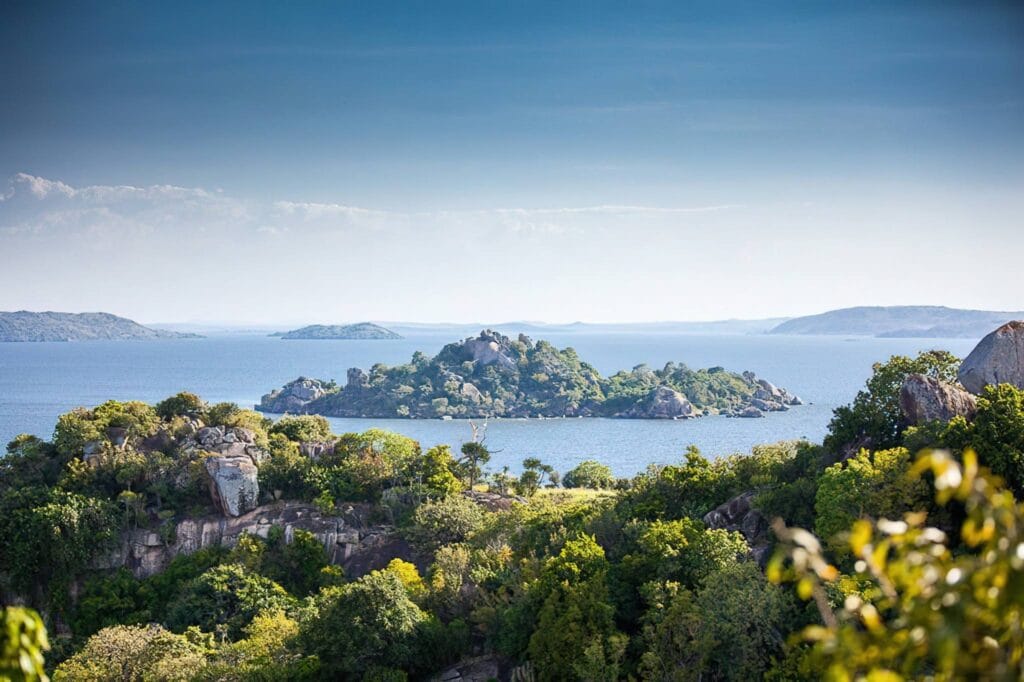

Tanzania, a land renowned for its stunning landscapes, diverse wildlife, and rich cultural heritage, also harbors a unique and enchanting way of life—its floating villages. Nestled along the tranquil waters of Lake Victoria, Lake Tanganyika, and other inland waterways, these communities offer a captivating glimpse into life on the water. Embarking on a journey with Future African Safari allows you to explore these floating villages, where traditional lifestyles harmoniously blend with the rhythms of the water. Join us as we delve into the floating villages of Tanzania and discover the vibrant cultures, resilient communities, and serene environments that define life on the water.

The Allure of Floating Villages
Floating villages are more than just a mode of residence; they are a testament to human adaptability and ingenuity. These communities thrive on the water, leveraging its resources for sustenance, transportation, and daily living. The floating villages of Tanzania offer a unique perspective on sustainable living, community cohesion, and the intricate relationship between humans and their aquatic environment.
- Sustainable Living: Floating villages utilize the water’s resources efficiently, relying on fishing, aquaculture, and sustainable farming practices to sustain their livelihoods.
- Community and Culture: These villages foster strong communal bonds, with traditions and cultural practices deeply intertwined with life on the water.
- Environmental Harmony: Living in harmony with the waterway ecosystem promotes environmental stewardship and sustainable resource management.
Top Floating Villages to Visit in Tanzania
Tanzania boasts several remarkable floating villages, each offering its own unique charm and cultural richness. Here are some of the top floating villages to include in your safari itinerary:
1. Kigoma Floating Village (Lake Tanganyika)
Located on the eastern shores of Lake Tanganyika, Kigoma Floating Village is a vibrant community where houses are built directly on the water or on stilts above it.
- Cultural Diversity: The village is home to various ethnic groups, including the Ha and Wanyamwezi, each contributing to the rich cultural tapestry of the community.
- Fishing Heritage: Fishing is the lifeblood of Kigoma Floating Village. Visitors can observe traditional fishing techniques and even participate in fishing excursions.
- Local Markets: Explore floating markets where villagers sell freshly caught fish, handmade crafts, and local produce, providing a lively and colorful experience.
2. Ukerewe Floating Village (Lake Victoria)
Situated on Ukerewe Island, Tanzania’s largest island in Lake Victoria, this floating village offers a serene and picturesque setting.
- Agricultural Practices: Beyond fishing, the villagers engage in agriculture, cultivating crops like bananas, cassava, and maize to supplement their diet.
- Community Life: Experience the close-knit community life, where families live in interconnected stilt houses and communal spaces foster strong social bonds.
- Ecotourism Opportunities: Engage in eco-friendly activities such as birdwatching, canoeing, and guided tours that highlight the village’s sustainable practices.
3. Saanane Floating Village (Lake Rukwa)
Nestled in the lesser-known Lake Rukwa region, Saanane Floating Village offers an authentic and untouched glimpse into life on the water.
- Traditional Architecture: The village features traditional African architecture adapted to the aquatic environment, with homes made from locally sourced materials.
- Cultural Performances: Enjoy traditional music and dance performances that reflect the village’s heritage and communal spirit.
- Environmental Initiatives: Learn about the village’s efforts to preserve the lake’s ecosystem through sustainable fishing and waste management practices.
Daily Life in the Floating Villages
Living in a floating village involves a unique blend of daily routines, cultural practices, and environmental interactions. Here’s a closer look at what life is like in these communities:
1. Fishing and Aquaculture
Fishing is the primary occupation in most floating villages, providing both sustenance and income.
- Traditional Techniques: Villagers use traditional fishing methods such as nets, traps, and hand lines, passed down through generations.
- Aquaculture: Some villages engage in aquaculture, breeding and farming fish species to ensure a steady supply of fish and reduce pressure on wild populations.
- Fish Processing: Freshly caught fish are often processed and preserved locally, creating value-added products like dried fish, which are sold in local and regional markets.
2. Agriculture and Gardening
In addition to fishing, agriculture plays a crucial role in the livelihoods of floating village residents.
- Floating Gardens: Villagers cultivate crops on floating platforms or in shallow waters, utilizing hydroponic techniques to maximize space and resources.
- Crop Diversity: Common crops include vegetables, fruits, and grains, which are essential for daily nutrition and trade.
- Sustainable Practices: Emphasis on organic farming and sustainable agriculture ensures minimal environmental impact and maintains soil and water quality.
3. Community and Social Life
Community cohesion is a cornerstone of life in floating villages, fostering strong social bonds and collective responsibility.
- Communal Spaces: Shared areas for gatherings, ceremonies, and communal work promote unity and cooperation among villagers.
- Cultural Traditions: Traditional customs, rituals, and celebrations are integral to community life, preserving cultural heritage and fostering a sense of identity.
- Education and Health: Many villages have communal schools and basic health facilities, ensuring access to education and healthcare for all residents.
Activities for Visitors
Visiting Tanzania’s floating villages offers a range of activities that allow travelers to engage with the local community and environment meaningfully.
1. Guided Tours and Cultural Exchanges
Join guided tours led by local residents to gain insights into daily life, cultural practices, and sustainable living.
- Cultural Workshops: Participate in workshops on traditional fishing, agriculture, and handicrafts, providing hands-on experiences and skill-building opportunities.
- Storytelling Sessions: Listen to stories and legends passed down through generations, offering a deeper understanding of the village’s history and cultural significance.
2. Fishing Excursions and Canoeing
Experience the thrill of fishing or explore the waterways on a canoe, immersing yourself in the aquatic environment.
- Traditional Fishing Trips: Accompany local fishermen on their boats, learning about different fishing techniques and the types of fish found in the lake.
- Canoeing Adventures: Paddle through the village’s waterways, enjoying the serene beauty and observing wildlife in their natural habitat.
3. Eco-Tourism and Wildlife Watching
Engage in eco-friendly activities that highlight the village’s commitment to environmental conservation.
- Birdwatching: Tanzania’s lakes are home to a diverse array of bird species, making birdwatching a popular activity for nature enthusiasts.
- Wildlife Safaris: Combine your visit to a floating village with nearby wildlife safaris, exploring the rich biodiversity of Tanzania’s national parks and reserves.
Conservation and Sustainable Tourism
Future African Safari is dedicated to promoting sustainable tourism practices that benefit both visitors and local communities.
- Responsible Engagement: Encourage respectful interactions with villagers, emphasizing the importance of cultural sensitivity and environmental stewardship.
- Support Local Economy: Partner with local businesses and artisans, ensuring that tourism revenue directly supports community development and conservation initiatives.
- Environmental Preservation: Advocate for eco-friendly practices, such as minimizing waste, conserving water, and protecting wildlife habitats, to ensure the long-term sustainability of floating villages and their surrounding ecosystems.
Tips for Visiting Floating Villages
Maximize your experience while respecting the local community and environment with these practical tips:
- Respect Local Customs: Familiarize yourself with local traditions and etiquette to ensure respectful and meaningful interactions.
- Dress Appropriately: Wear modest clothing and comfortable footwear suitable for walking on uneven surfaces and participating in activities.
- Stay Hydrated and Protected: Bring plenty of water, sunscreen, and insect repellent to stay comfortable during your visit.
- Bring Reusable Items: Use reusable water bottles, bags, and utensils to minimize waste and support the village’s sustainability efforts.
- Engage and Learn: Take the opportunity to ask questions, participate in activities, and immerse yourself in the local culture to enrich your experience.
Plan Your Floating Village Tour with Future African Safari
Incorporating a visit to Tanzania’s floating villages into your safari itinerary offers a unique and enriching dimension to your travel experience. At Future African Safari, we design personalized tours that include immersive visits to these communities, ensuring a balanced blend of adventure, cultural exploration, and relaxation.
- Customized Itineraries: Tailor your floating village tour to match your interests and schedule, whether you’re seeking cultural immersion, eco-friendly activities, or serene relaxation.
- Expert Guides: Our knowledgeable guides provide in-depth insights into the local way of life, cultural practices, and sustainable living, enhancing your understanding and appreciation of the village.
- Sustainable Practices: We prioritize eco-friendly and responsible tourism, supporting local communities and conservation efforts to preserve the natural beauty and cultural heritage of Tanzania’s floating villages.
Ready to explore the enchanting floating villages of Tanzania? Contact Future African Safari today to customize your safari itinerary and embark on a journey that celebrates the unique and resilient communities living in harmony with the water. Discover the serene beauty, rich culture, and sustainable practices that make Tanzania’s floating villages a hidden treasure waiting to be explored.
Explore more about our safari packages and discover the best of Tanzania with Future African Safari. Your unforgettable African adventure starts here!

